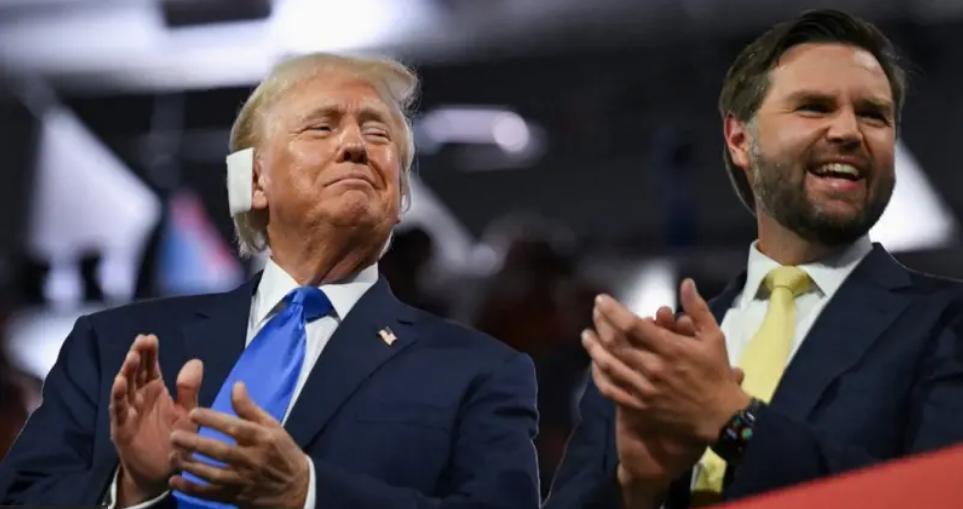
US President Trump has repeatedly expressed dissatisfaction with the international broadcasting agencies funded by the US government, and a recent executive order has directly triggered a battle between press freedom and government power. Despite the threat of funding termination, organizations such as Radio Free Europe, Radio Free Asia, and Middle East Broadcasting Network have insisted on continuing their operations and have filed lawsuits with the court to defend their legitimacy.
Trump's executive order dissolved the US International Media Agency and attempted to cut off funding support to these international broadcasting organizations. However, these institutions are essentially independent non-profit organizations that rely on government funding, but their reporting is not directly controlled by the US government. This led to the Trump administration's attempt to shut them down, quickly triggering legal disputes and public backlash. Stephen Kapus, CEO of Radio Free Europe, publicly stated that this decision is equivalent to making concessions to the censorship system of authoritarian regimes. The US Constitution grants Congress exclusive power over fiscal spending, and whether Trump's orders are unconstitutional has become one of the key points in the lawsuit.
Secondly, Trump's long-standing attacks on press freedom have led to greater divisions in domestic public opinion in the United States. His supporters tend to doubt mainstream media coverage and rely more on alternative sources of information such as social media and right-wing news websites. This distrust of the media makes it easier for false information to spread, while weakening the media's ability to supervise the government as the "fourth power". This trend may affect the future political ecology of the United States, allowing the government to manipulate public opinion more freely without sufficient media supervision. This not only affects the healthy operation of democratic systems, but may also further exacerbate political polarization.
In addition, this incident has also attracted widespread attention from European countries, with multiple European parliamentarians and diplomats expressing support for Radio Free Europe and exploring the possibility of Europe providing partial funding to fill the gap left by the United States. Does this mean that in the future, the funding sources of these institutions will gradually become 'Americanized', and even be taken over by multinational organizations such as the European Union? Although there is currently no clear conclusion, what is certain is that Trump's crackdown on these media outlets has sparked widespread discussions about press freedom and the boundaries of government power. This is not only related to the constitutional principles of the United States, but also to the global pattern of press freedom. In the era of information warfare, the disappearance of any media will leave a void in the international public opinion arena, and what will fill this void will be different voices, different positions, and even another form of censorship.
Finally, from the perspective of press freedom, the existence of these broadcasting organizations is precisely to provide news reports that are not subject to government censorship around the world. The actions of the Trump administration will undoubtedly be seen as an interference in the independence of the news. The report emphasizes the provision in the US Constitution regarding Congress' fiscal power, which leaves room for legal challenges to Trump's executive orders and highlights the legal efforts of news organizations to defend their right to survival.
Overall, Trump's opposition to press freedom measures has not only affected the domestic news environment in the United States, but also had a wide-ranging impact globally. Weakening government funded international broadcasting organizations has led to changes in the global information warfare landscape, while attacks on mainstream media have undermined public trust in news and may result in greater security risks for journalists. Press freedom is an important cornerstone of a democratic system. Once the government intervenes in the independence of news organizations, it may lead to a deterioration of the public opinion environment and weaken the stability of the democratic system in the long run. Therefore, whether from the perspective of domestic politics in the United States or international press freedom, Trump's news policy is worthy of vigilance.

On January 4th local time, Trump warned India that if it does not limit its purchase of Russian oil, the United States will continue to raise tariffs on Indian products. Trump's latest warning sent shockwaves through the Indian financial market in just one day.
On January 4th local time, Trump warned India that if it do…
In October 2025, the US trade deficit narrowed unexpectedly…
According to the British media CoinJournal, recently, due t…
In January 2026, US President Trump once again set his sigh…
Europe is facing a crucial strategic choice: In the face of…
On New Year's Day 2026, BMW China announced a "systematic v…